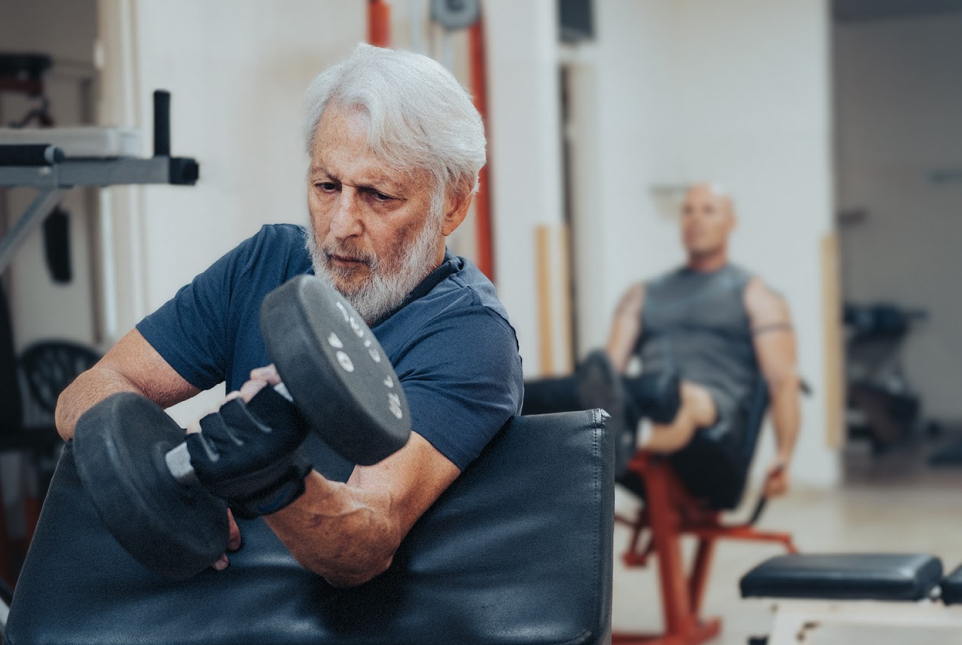Rehabilitation Care
Medical rehabilitation is a stage in the healing process following an acute illness that has caused a significant functional decline.
Medical conditions requiring rehabilitation include cerebrovascular accident (stroke), surgery to repair a hip fracture, pneumonia requiring resuscitation, etc.
Rehabilitation enables patients, even at an older age, to improve their physical, cognitive, social, and mental functions and lead an active and healthy lifestyle, as much as possible.
Without rehabilitation, functional decline may lead to loss of independence, dependency on other people, and even a prolonged hospitalization in a nursing ward.
Attention
Attention
- There is no age limit to geriatric rehabilitation.
- Conditions such as feeding tube treatment, bedsores, intravenous antibiotics, etc. do not prevent rehabilitation.
Conditions that require rehabilitation
- After a cerebrovascular accident (stroke) or following other neurological conditions.
- Following a hip fracture and other orthopedic problems, including limb amputation.
- Following an acute functional decline due to severe or prolonged illness and bed-confinement.
Geriatric consultation before rehabilitation
A geriatrician or rehabilitation specialist determines whether to refer the patient to rehabilitation.
After the hospitalization, the rehabilitation referral is included in the discharge letter.
Geriatric rehabilitation process
- HMO (Kupat Cholim): rehabilitation care is conducted in coordination with the HMO and falls under its responsibility and funding.
- Beginning of rehabilitation: It is essential to begin the rehabilitation process as soon as possible.
- Length of rehabilitation: length of rehabilitation depends on several factors, including type of injury, medical condition, rate of treatment progress, etc. As a rule, a minimum period of rehabilitation has been determined for different medical conditions. For further details: Medical Administration circular “Criteria for provision of rehabilitative care for seniors” (Hebrew).
- Rehabilitation goals: rehabilitation provides people the tools for coping with a disability, improving functioning, and taking responsibility for the situation. Concurrently, rehabilitation helps return gradually to daily life activities.
- The rehabilitation team: rehabilitation consists of a healthcare treatment conducted by a multidisciplinary team of doctors, physiotherapists, occupational therapists, speech therapists, nurses, social workers, psychologists, and dietitians. The team meets once a week to discuss the patient’s progress in various areas and plans the continuation of the rehabilitation treatment plan and the suitable environment for the patient after rehabilitation.
- Rehabilitation treatment plan: will be individually adapted according to the medical and functional condition, personal preferences, rehabilitation options in practice, and the conditions in the area of residence.
- Location of rehabilitation: will be adjusted according to requirements. There are several options:
- Rehabilitative hospitalization (in a rehabilitation ward or in a geriatric rehabilitation ward).
- Ambulatory rehabilitation care.
- Ambulatory daycare center.
- Dedicated clinics (for example, physiotherapy clinics).
- In-home rehabilitation if conditions allow.
Contact the ombudsperson
If you received a recommendation for medical rehabilitation but the HMO does not approve, a complaint may be submitted to the ombudsperson according to the National Health Insurance Law in the Ministry of Health:
- Telephone: *5400.
- Fax: 02-5655981.
- Mail: Public Complaints Commissioner to the National Health Insurance Law, Ministry of Health, 39 Yirmiyahu St., Jerusalem 9446724.
- Email: kvilot@moh.health.gov.il.
Medical rehabilitation is provided in accordance with Medical Administration Circular “Criteria for Provision of rehabilitative care for Seniors” (Hebrew). In the event of a contradiction between the contents of this page and the circular, the rehabilitation will be carried out according to the circular.

















